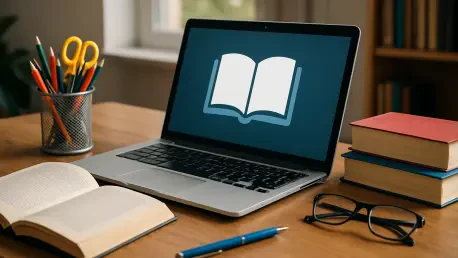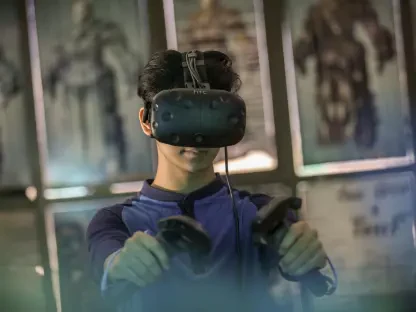In an era where technology reshapes education at an unprecedented pace, the role of Open Educational Resources (OER) as digital public goods has never been more critical, especially when considering the dual challenges of artificial intelligence (AI) and equity in access to knowledge. A recent global panel of experts convened to explore how OER can bridge gaps in education systems while addressing the rapid advancements in digital tools. Their discussion revealed a pressing need to balance innovation with fairness, ensuring that technology serves as a tool for inclusion rather than exclusion. With AI transforming the knowledge ecosystem in ways that were unimaginable just a few years ago, the conversation underscored the urgency of aligning educational resources with principles of openness and accessibility. This pivotal dialogue sets the stage for examining how OER can foster quality education while navigating the complex interplay of technological progress and societal equity in a digitally driven world.
Harnessing Technology for Inclusive Education
The integration of AI into education offers immense potential to personalize learning and expand access, but it also raises significant concerns about equity when not paired with open resources like OER. Experts at the global session emphasized that generative AI, while innovative, often outpaces regulatory frameworks, creating a gap that could widen disparities in education if left unaddressed. The Dubai Declaration, a guiding framework, connects established policies such as the UNESCO Recommendation on OER to the current digital landscape, advocating for the strategic use of emerging technologies. This alignment aims to ensure that advancements like AI do not become tools of exclusion but rather catalysts for democratizing education. By embedding OER into digital platforms, there is an opportunity to create scalable, inclusive systems that prioritize access for underserved communities, addressing systemic barriers that have long hindered equitable learning opportunities across diverse regions globally.
Furthermore, the challenge lies in ensuring that technological tools do not overshadow the fundamental goal of education as a public good, a concern that dominated much of the expert panel’s discourse. Without deliberate efforts to integrate OER with AI, there is a risk that proprietary systems will dominate, limiting access to quality resources for marginalized groups. The emphasis on openness as a core principle serves as a counterbalance to this threat, promoting content that is freely available and adaptable to local needs. Policies must evolve to support the development of digital ecosystems where OER can thrive alongside AI, ensuring that innovation does not come at the cost of fairness. This approach requires collaboration among educators, policymakers, and technologists to design systems that are not only cutting-edge but also deeply rooted in the ethos of shared knowledge, thereby safeguarding education as a universal right rather than a commercial commodity.
Addressing Digital Sovereignty and Agency
A critical issue in the adoption of digital tools for education is the growing reliance on corporate platforms, which often undermines institutional autonomy and threatens the principles of the commons. Experts highlighted that in regions like Africa and Latin America, dependence on tech giants for educational infrastructure can conflict with local priorities, creating a form of digital dependency. This concern points to the need for digital sovereignty, where educational institutions retain control over their technological ecosystems rather than ceding it to commercial interests. Advocates argue for ethical procurement practices in technology, drawing parallels to sustainable sourcing in other industries, to ensure that digital tools align with educational values. Such a shift would empower schools and universities to make decisions that prioritize community needs over corporate agendas, reinforcing the role of OER as a counterweight to proprietary dominance.
Equally important is the push for agency among educators and learners in shaping their digital environments, a theme that resonated strongly during the expert discussions. By fostering community-driven solutions, OER can help build resilience against the encroachment of commercial platforms that often prioritize profit over pedagogical integrity. This involves not just access to free materials but also the ability to adapt and customize resources to reflect cultural and contextual realities. Governance models rooted in principles like FAIR (Findable, Accessible, Interoperable, Reusable) and CARE (Collective Benefit, Authority to Control, Responsibility, Ethics) were cited as essential for creating open ecosystems. These frameworks encourage democratic participation in the creation and use of educational content, ensuring that technology serves as an enabler of empowerment rather than a source of exclusion or control in the educational landscape worldwide.
Building Sustainable and Collaborative Ecosystems
Sustainability in the OER landscape emerged as a cornerstone of the dialogue, with experts cautioning against the pitfalls of fragmented, short-lived initiatives that fail to deliver lasting impact. Isolated repositories, often created by governments or institutions, were criticized for lacking the collaborative infrastructure needed to endure over time. Instead, there is a call for shared digital ecosystems that leverage collective resources and expertise to maintain and expand access to educational materials. Such systems would not only reduce redundancy but also ensure that OER remain relevant in the face of evolving technological trends like AI. This vision of sustainability requires investment in interoperable platforms that can adapt to future needs while prioritizing inclusivity, ensuring that no learner is left behind due to systemic or technological barriers in the educational sphere.
Beyond infrastructure, the focus on governance underscores the broader implications of OER as digital public goods, a perspective that shaped much of the session’s outcomes. Building sustainable ecosystems means embedding ethical decision-making into every layer of digital education, from content creation to platform design. This approach challenges stakeholders to move beyond merely providing free access and instead foster environments where knowledge is co-created and shared equitably. Collaborative efforts, supported by global frameworks like the Dubai Declaration, are essential to achieving this goal, as they encourage alignment across diverse regions and institutions. By prioritizing long-term impact over short-term gains, these efforts aim to transform digital education into a space where equity and innovation coexist, ensuring that the benefits of technology are distributed fairly across all segments of society.
Reflecting on a Path Forward
Looking back, the global session provided a profound examination of how Open Educational Resources stand as vital tools in addressing the intersection of AI and equity in education. The insights shared by experts painted a clear picture of the challenges faced, from regulatory lags to digital dependency, while also highlighting actionable strategies that were proposed. Moving forward, the focus must shift to implementing the collaborative infrastructures that were envisioned, ensuring that OER continue to serve as a foundation for inclusive learning. Stakeholders were urged to align with established policies and embrace shared digital ecosystems as a means to reclaim control over educational tools. By prioritizing ethical governance and sustainable practices, the path ahead could lead to a future where technology amplifies access rather than restricts it, offering a blueprint for transforming digital education into a true public good for generations to come.









